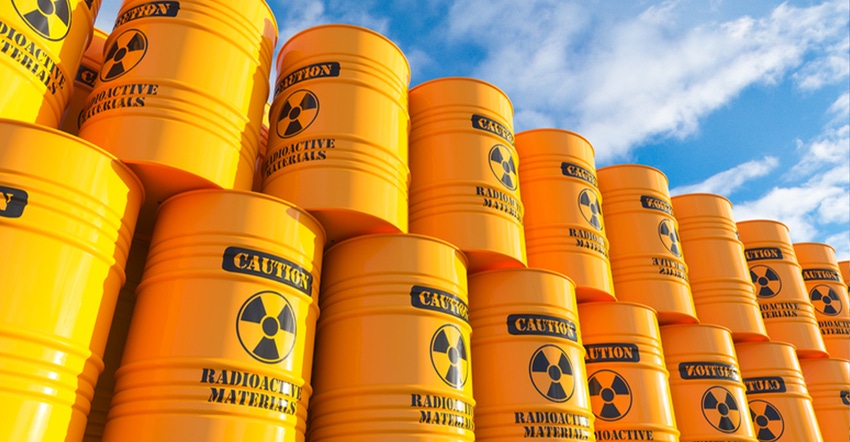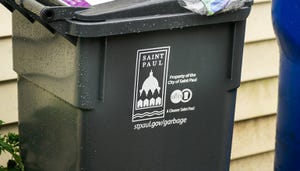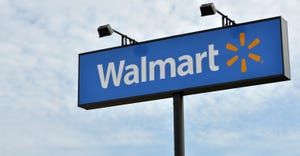Ingenium CEO Heather Johnson Talks Hazardous Waste Compliance

When CEO Heather Johnson joined Ingenium eight years ago, hazardous waste management was largely comprised of small players.
While industry consolidation has changed the business landscape since then, the Escondido, Calif.-based company continues to expand its broad range of services in packaging, transportation, recycling, and disposal of hazardous, non-hazardous, biological, universal and radioactive waste.
Ingenium itself closed the acquisition of WSR Environmental and Safety Management in December 2021. WSR provides environmental health and safety consulting services from safety planning to environmental permits, a complement to the services Ingenium already provides.
"Our strength lies in our innovative approach to each process, profile and waste stream," Johnson said of the acquisition. "This provides the knowledge to create waste reduction and reuse strategies, leverage our treatment facility network and present our clients with the most sustainable, measurable, and cost-effective hazardous waste solutions."
Waste360 recently sat down with Johnson to discuss the purchase of WSR and the challenges that come with hazardous waste disposal.
This interview has been edited for length and clarity.
Waste360: Tell us about Ingenium’s our approach to each process, profile and waste stream.
Johnson: Ingenium takes a consultative approach to the customer. We'll go in and we'll look at what the customer is doing, what the customer is looking to do specifically with their waste and identify if there's any opportunity to make change. Let's say it's a manufacturing process, and at some point along the way, they're introducing something to the waste stream that they could otherwise keep separate. We'll look at that and help them understand the implications of those constituents over the process. Ultimately, we're looking to uncover if customers have sustainability goals and how we can provide better technology to manage their hazardous waste.
Waste360: What types of hazardous waste is Ingenium currently managing?
Johnson: We're managing everything that can't go into the trash, basically toxic chemicals. We manage medical waste. We manage radioactive waste, universal waste, things like light bulbs and batteries, electronics, pretty much everything, and we're even now including solid waste.
Waste360: Are there any particular challenges for which Ingenium has found a solution?
Johnson: The incineration capacity challenges that originated earlier this year posed huge challenges for everybody. Sometimes in hazardous waste, there's no other option but to burn it It just has no reuse value. You can't put it in the ground; you have to incinerate it. The incineration capacity is very limited and continues to be limited. So, we've had to be really creative - again back to that consultative approach - in going to the customers and saying, "okay, what exactly are you doing? Are you sure this material is what you say it is," and finding other alternatives, minimizing the need for the incinerators.
Waste360: What opportunities do you see with this acquisition?
Johnson: Specifically with consulting services in EHS compliance, we can be more in the customer's space over time. We can help them with their compliance but also help them with their processes to ensure they don't get contaminants and other things that might otherwise keep them out of recycling options. It adds to our service offerings. Prior to the acquisition of WSR, we were largely just involved with the transportation and management of the hazardous waste. We don't own any technology. We were just arranging for final disposition, so more service offerings for a more well-rounded opportunity.
Waste360: What gaps do you see currently with your clients or in the industry when it comes to environmental health and safety (EHS) and hazardous waste training?
Johnson: I see a lack of knowledge and understanding of the need for it by the customers. So, we help them understand the regulations and why it's important, and then we can provide them the training to keep them in compliance.
Waste360: Where do you see the Biden administration shaping regulatory requirements for hazardous waste?
Johnson: With this administration and those before, to me, regulation just gets more stringent. More and more things need to be managed as opposed to going in the trash, so the environmental needs for the future, specifically. I see the industry booming because more and more things are going to be regulated and need to be managed.
Waste360: What do you see coming up for Ingenium and hazardous waste in the future?
Johnson: I'm just excited for the growth opportunities we've been expanding. We originated in California. We've expanded into the Pacific Northwest and most recently into Texas. I'm looking forward to really expanding our service offerings so we can have more of a national presence. We are working with our customers on zero waste certification. What I really see is more of an environmental need to minimize and eliminate waste.
Companies are looking to work with suppliers that have more sustainable solutions in general, whether it be packaging that can be recovered or other types of things upstream that minimize the waste. But, at the end of the day, there's still waste product, right? So, how can we reuse those materials and continue the life of them for a greater period of time. What [Ingenium] does is dig through their trash, conduct an audit and we present them with data that says, "here's what you're currently doing." It's fascinating because these businesses have no idea what's going into their trash. With that, there's a lot of opportunity to remove things and redirect them in terms of the reuse opportunities. So, I'm really excited about where that's going to take us.
About the Author(s)
You May Also Like




